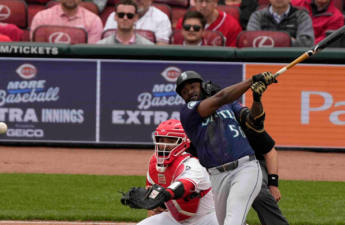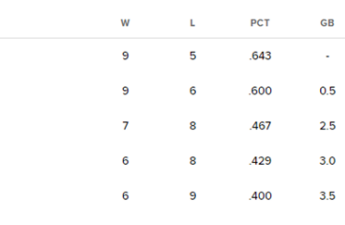Yesterday, my recent post on mass-shootings and the second amendment garnered a wide response on Facebook. Most of it was from people who are rabidly pro-gun.
What’s kind of fascinating about the experience is that I had forgotten there were a wide number of people in the country itself who are so adamantly pro-gun. I knew there were corporations in favor of gun proliferation, and politicians bought off by the NRA. But the thing we often forget about the NRA is that it has a wide membership. Since my wife left me five years ago, I had lost touch with my last real bastion of gun ownership in my day-to-day life, that being her family who had an arsenal in the basement and regularly went to the shooting range as a Sunday outing. It was easy to get lost in my own Facebook echo-chamber in the wake of mass shootings and believe that it really is only politicians and corporations who are fueling these disasters.
I really shouldn’t have been as surprised by the reaction as I turned out to be. Like all people trying to promote content on the Internet, I chose an attention-grabbing headline and a controversial picture and blurb. I wanted the experience of seeing the post to be dramatic since I see this as a dramatic issue. And I know, deep down, that Donald Trump is highly likely to win the Republican nomination, arguing against folks who for months have said he’s a flash-in-the-pan and even now maintain that the flash is six or seven months, but certainly not the eighteen he needs to be President.
Who do I think is voting for Donald Trump if not rabid gun-nuts?
That said, there were some really interesting interactions. I had several back-and-forth threads with some of the more articulate gunners which ended in a conclusion of begrudging mutual respect that we’d each argued our positions well and kept things civil. A couple of people for banning the second amendment valiantly did battle with the gunners, but it mostly ended in name-calling. There was, incidentally, an unbelievable lack of accurate spelling almost across the board.
I tell everyone I discuss the subject with that I deeply love Facebook. While I regret its impact of filtering the previously wide-open Internet into one primarily used portal of information, this is vastly outweighed by the contact it engenders between people. I love that I can post an open-ended crowd-source poll on income inequality and generate a thoughtful discussion between twenty different people, many of whom never met each other. I love that thirty people will respond to my random question about which month most symbolizes winter to them. I love the randomness and the sense of loose affiliation we all have.
And I’ve never really found the critiques of Facebook to be all that compelling. Especially when the main one is about artificial presentations of happiness. Though I recognize that I, perhaps somewhat uniquely, really don’t mind expressing frustration, depression, or despair on Facebook. But if others are more inhibited there, then doesn’t Facebook just reflect how they’d be in other public settings? Which I guess brings me to the issue that I’ve learned from this run-in with gunners: garbage in, garbage out. Maybe the only reason I like Facebook is because I like my friends and they are easy to deal with. There are even some pro-gun folks among my Facebook friends, many of them from the five years I spent in rural Oregon in my childhood or from the West Point debate team. But because we have the bond of friendship, we are able to be respectful in a way that many of the gunners were not yesterday.
So perhaps the critique of Facebook, like so much of the Internet, as a siloing echo-chamber, is valid. Most every algorithm that the primary holders of the Internet, be they Facebook, Google, or Apple, have developed in the last half-decade has been designed to customize our Internet experience to be more reflective of what we already believe. What we want, what we think, what we feel is just shot back at us in search results, the friends whose posts get bumped higher in our feed, and the ads we see. And much of it is, ultimately, about advertising. People want to customize and tailor advertising to get precisely in our head, to be as close to intercepting our inner monologue as possible in order to understand exactly how to sell us goods and services. This little capitalist worm that infects everything has inspired the tailoring, but it is probably not the only thing that drives it. Certainly we are comfort-seeking beings, no matter how much harm being comfortable ultimately does us. And it’s comfortable to wrap ourselves in a cocoon where only the like-minded surround us.
The problem is, of course, that there aren’t ground-rules for debating on the Internet, so it’s not possible to learn quite as much from Facebook comments like “With such a outrageous statement for a title no sane person will even read your article …. If the title is bullshit your article most likely is to!” or “Blue Pyramid sounds like the name of a Butt Plug…” or even just the classic “STFU” as I might from, say, a 45-minute ordered discussion on the topic. But maybe I’ve been spoiled by decades of formal debate experience. Maybe it’s good to just get down in the mud and wrassle with folks who spew invective in lieu of argumentation.
I guess I’ll close with the most popular article I saw yesterday from my actual Facebook friends, who were not the folks commenting at length on my Blue Pyramid post. The title was Your opinion on gun control doesn’t matter. And I think that kind of sums up where we stand at the ideological divide here in the United States in 2015. People just don’t think the other person’s opinion matters. They will rarely engage with it or interact in any real way. They will rarely regard it as something to be considered. They will simply hold their opinion and observe that the other person’s doesn’t matter.
And look, I’m not holding myself outside of this in some way. I have strong, firmly held beliefs that rarely change. My goal when I talk to others is usually to persuade. As a lifelong student of persuasion, I see that as core to my purpose here.
But at a certain point, I wonder how we’re going to rebuild bridges of discourse when everyone is getting swallowed up into their own cocoons and bubbles and silos. For all the world’s burgeoning connections, we seem to be building just as many walls.



